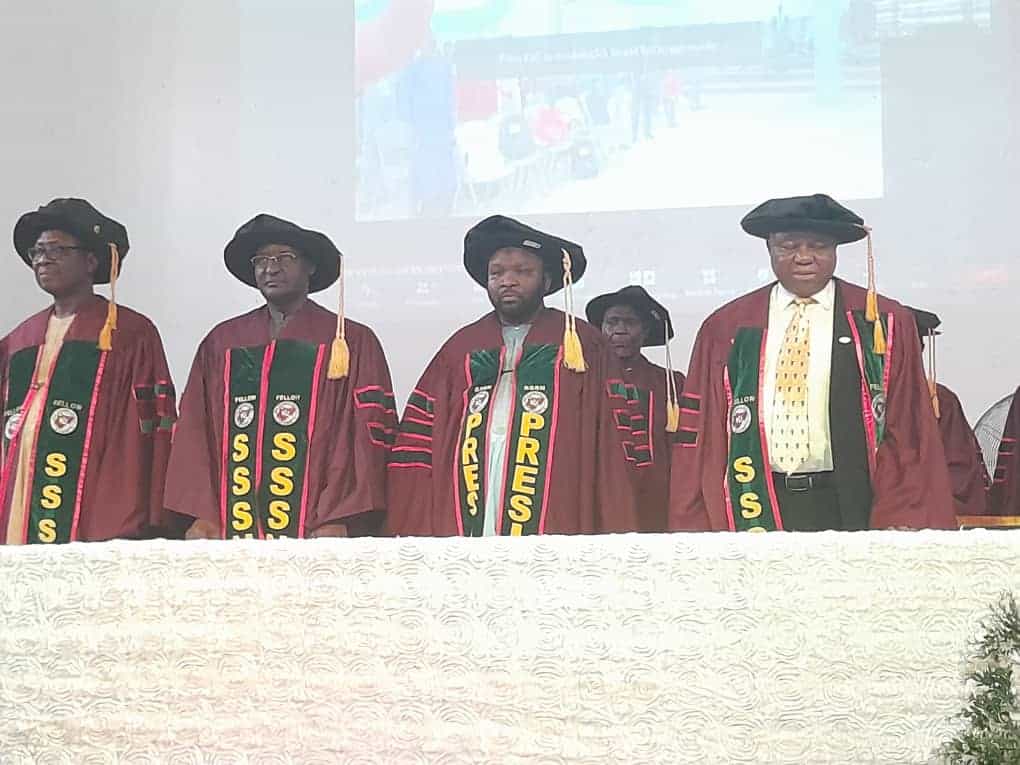The national President, Soil Science Society of Nigeria, SSSN, Prof. Jibrin Mohammed, on Wednesday, identified proper management of the soil and friendly ecosystem as panacea for sustainable food security and development.
Prof. Jibrin, who spoke at the University of Nigeria, Nsukka, UNN, during the 47th annual conference of SSSN, said that as a result of increase in human population, ecosystem services have been affected and the achievement of food security would remain in doubt unless there is serious enlightenment on climate change mitigation.
He further said that the conference became necessary to enable Soil Scientists in the country discuss research activities, share ideas and network as well as interface with critical stakeholders in order to proffer solutions to the increasing food insecurity in Nigeria.
While presenting the topic of the conference tagged ‘Tropical Soil, Water Resources Management and Climate Change Mitigation for Functional Ecosystem Services and Food Security,’ the Permanent Secretary, Ministry of Agriculture and Rural Development, Dr. Ernest Umakhihe,
explained that climate change results into loss of soil organic matter, reduction in moisture content and loss of soil structure.
He further said that disruption in rainfall intensity and distribution by climate change affect the water resources and food production, adding that the effects on the soil and water resources were already a threat to ecosystem services and food security.
He also said “The impacts of climate change on water resources can result in a range of negative effects, such as flooding, drought, sea-level rise in estuaries, drying up of rivers, poor water quality in surface and groundwater systems, precipitation and water vapour pattern distortions. These effects, when combined, would have devastating impacts on ecosystems and communities, resulting in economic and social impacts, as well as health and food insecurity.
“Implementing strategies like soil moisture conservation, drought-resistant crop varieties, and rainwater harvesting can enhance productivity in rain-fed regions. Irrigated agriculture plays a vital role in ensuring consistent crop production. Proper irrigation management, including scheduling, methods, and infrastructure, can lead to increased crop yields without overusing water resources. Sound policies and governance frameworks can encourage responsible water management. Effective water allocation, pricing mechanisms, and regulatory frameworks can help balance the needs of agriculture with those of other sectors.
“Providing training and education to farmers, extension workers, and policymakers on modern water-efficient practices is crucial for their effective implementation. Collaborative efforts involving governments, NGOs, research institutions, and private sectors can lead to a more holistic approach to agricultural water management.”
Earlier in his address, the Vice Chancellor of UNN, Prof Charles Igwe said that our lives and effective agricultural production depend solely on the soil.
He described the theme of the conference as apt, stating that it captures what the country requires to tackle the problem of food insecurity.
He equally said that information on soil should be field-based to help farmers treat their soil adequately.
Also, in his address, the chairman of the Local Organizing Committee, Prof. Charles Asadu, while thanking the participants, assured that the outcome of the conference would provide policy guidelines for government and stakeholders in addressing food insecurity in Nigeria.




